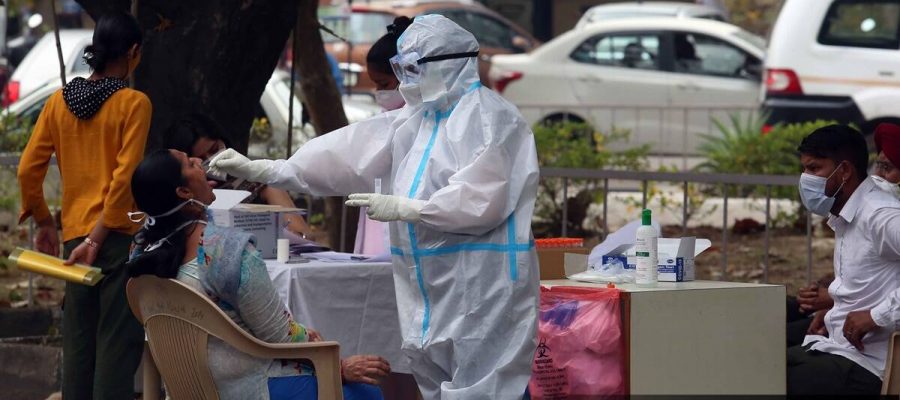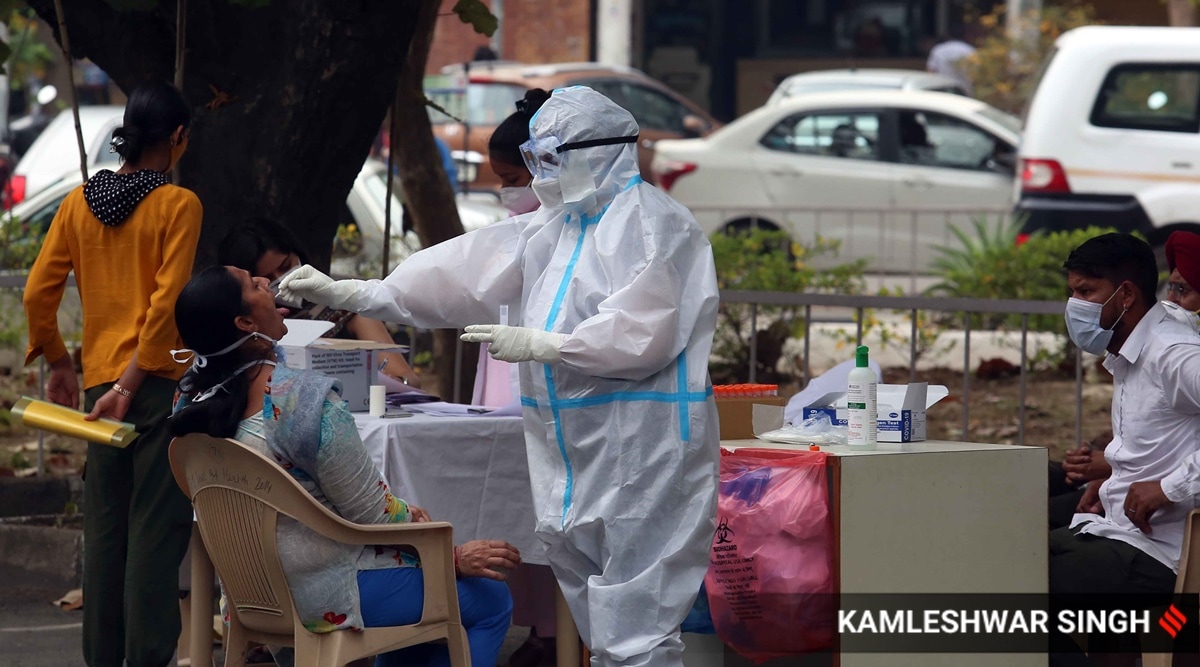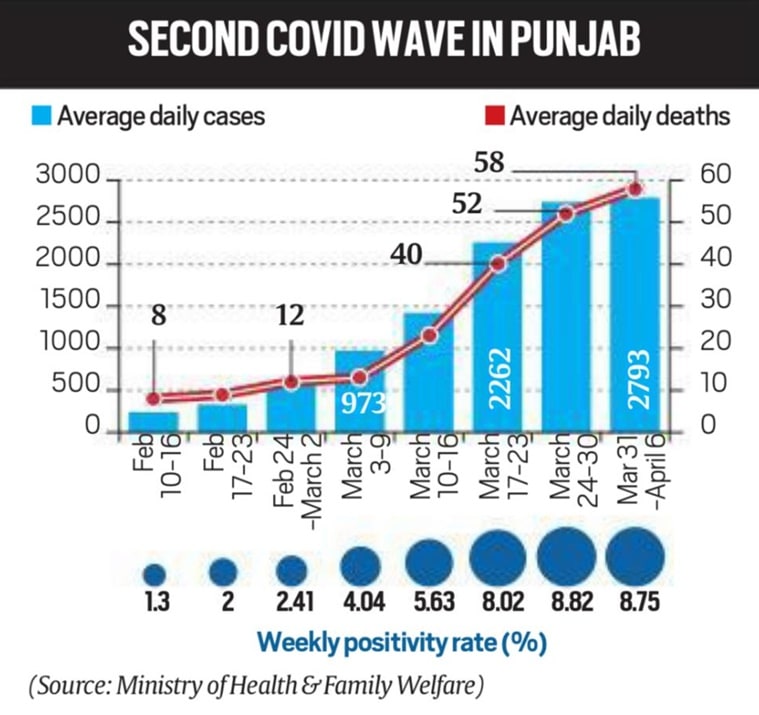Doctors in the region said that the new UK strain is quite infectious and attacks lungs early. They also blamed NRIs’ visits as being responsible for this strain spreading in the state.
Punjab’s Doaba region, which has four districts out of the state’s total 22, has seen 2.4 per cent increase in death rate in the second wave of the pandemic. While it witnessed 25.6 per cent of the state’s total Covid-19 deaths on March 19, as on April 5 it reported 28 per cent of the state’s total Covid deaths.
Doctors in the region said that the new UK strain is quite infectious and attacks lungs early. They also blamed NRIs’ visits as being responsible for this strain spreading in the state.
As on March 19, Doaba had recorded 1,594 Covid deaths (25.6 per cent) out of state’s total of 6,204. On April 5, Doaba recorded 2,008 deaths out of total 7,155 deaths of the state which comes to 28 per cent of the total deaths. In 17 days, 414 deaths have taken place which comes to over 24 deaths daily in the region.
Jalandhar and Hoshiarpur have recorded 299 out 414 deaths, respectively, between March 19 and April 5 (17 days).
In Jalandhar district, 153 deaths took place in this period, while Hoshiarpur reported 146 deaths in the past 17 days. The total death of Jalandhar since the pandemic began has been 951, whereas Hoshiapur has reported 585 deaths in total.
The total confirmed cases in Doaba have also increased from 24 per cent to 25.3 per cent during this 17-day period, with Jalandhar topping the list with 31,788 confirmed cases out of 64,311 cases of Doaba region. There were a total 2,54,152 confirmed cases in Punjab till April 5. Jalandhar alone counted for 12.5 per cent of the total confirmed cases of the state.
As far as active cases of Doaba region are concerned it has come down considerably in this period from 38.2 per cent to 23.6 per cent from March 19 to April 5. As total number is active cases in Doaba are currently 6,004 including 54 per cent (3,259) in Jalandhar district which is also 12.8% of the total active cases of the state. Jalandhar has seen an increase of 1,128 cases in this period.
A senior health officer, on the condition of anonymity, said that increasing death toll is because of the late referral to the Level 3 Covid-care facility by the patients’ families and also the people with mild symptoms having comorbid conditions too are at high risk because they are taking things lightly which they should not take especially with this new strain. He said that the moment the oxygen level is going down from the required level, the patients must be shifted to the hospitals for the proper care and oxygen supply.
Also one of the civil surgeons of Doaba region said that as far as new strain is concerned there is no official instructions about this and they are dealing cases as per the guidelines of old strain only.
Jalandhar District Nodal Officer for Covid-19, Dr T P S Sandu, said that the trend of increasing cases is almost in the entire state. He said that patients with co-morbid conditions as well as with mild symptoms must report to doctors.
He said that the new strain is highly infectious and people must take extra care in case they need to go out of their house. Asked about the role of NRI visits to Punjab in the contribution of Covid cases, he said that it cannot be ruled and if UK strain is here it is because it has been brought from there only.
Civil Surgeon, Nawanshahr district, Dr Gurdeep Singh Kapur, said that a team of the Centre had come to Doaba region over three weeks back and it had pointed out that people were not caring about Covid norms and had directed health and district officials to be strict, adding that more emphasis must be given to the contact tracing so that proper timely action could be taken to break the chain. The team had said that a tab on the travellers, especially foreigners, must be kept.
Doaba was the hotspot in the first wave also when Nawanshahr had reported fourth Covid death of the nation on March 19, 2020.
Source: Read Full Article



